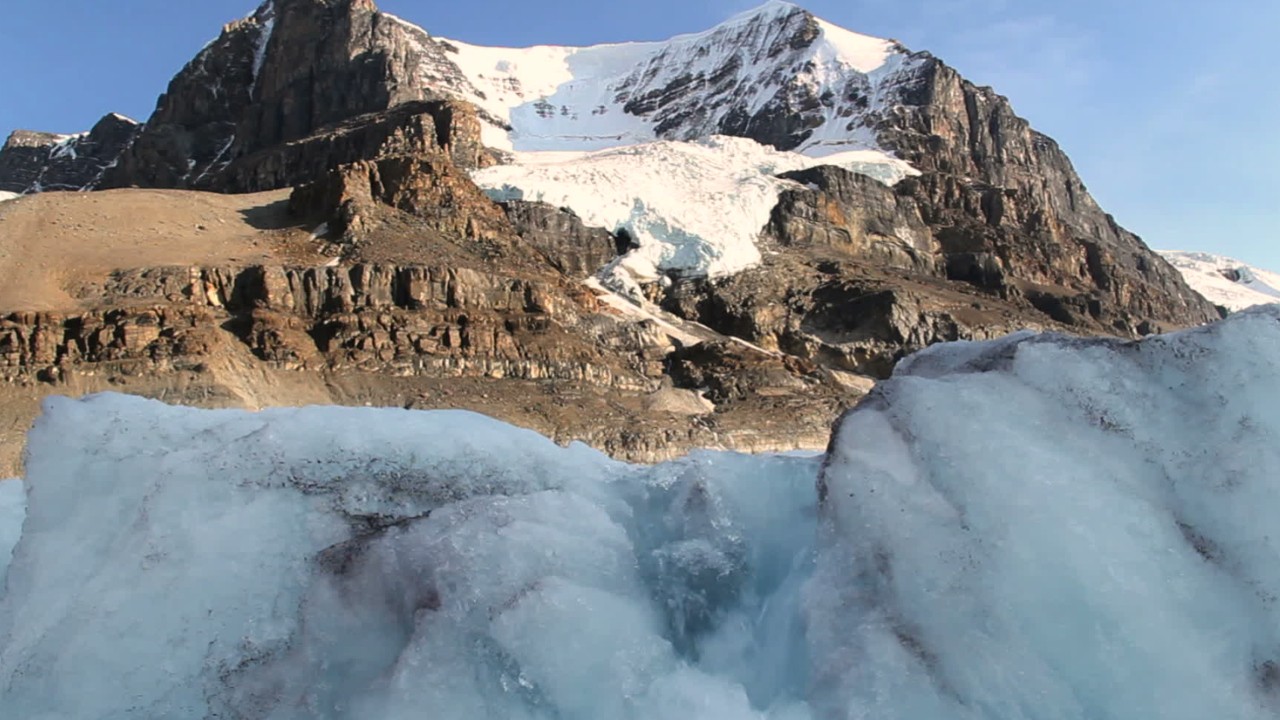Post by Andrei Tchentchik on Mar 12, 2020 18:56:51 GMT 2
(.#A.080).- Canadian glaciers are melting faster and faster.
Canadian glaciers are melting faster and faster.
ASSOCIATED PRESS
Posted on April 08, 2019
Archives
Western Canada's glaciers lose more than 1% of their mass each year, warns new research, which means that they are among the fastest melting on the planet.

Hanging Glacier Alberta Canada
The glaciers of central Europe, the Caucasus, the continental United States and New Zealand are melting at a comparable rate, we learn from the pages of the prestigious scientific journal "Nature", just like those located near the tropics .
At this rate, the glaciers in these regions will be gone by the end of the century, says the study's lead author, researcher Michael Zemp, who heads the Glacier Monitoring Service at the University of Zurich.
In general, the world's glaciers are liquefying much faster than scientists have believed so far. The study reveals that they lose 369 billion tonnes of snow and ice each year, more than half of which in North America.
This study, which is presented as the most comprehensive survey ever carried out on the health of glaciers, finds that they are melting 18% faster than scientists calculated in 2013.
They are melting five times faster today than they did in the 1960s. Their melting is attributed to climate change and further inflates sea levels, according to the study. In the Canadian Arctic, the intensification of the summer melt is mainly responsible for the situation.
Zemp said virtually every part of the world has started to melt in the past 30 years.
He and his team used ground measurements and satellite data to examine 19,000 glaciers, a significantly higher number than in previous studies. They calculated that Southwest Asia is the only one of 19 regions where glaciers do not recede, which Mr. Zemp attributes to local weather conditions.
Since 1961, the world has lost 9,600 billion metric tonnes of snow and ice, the study says, enough to cover the 48 continental American states under 1.20 meters of ice.
The melting of glaciers is responsible for 25 to 30% of the annual rise in sea levels.
F I N .
Canadian glaciers are melting faster and faster.
ASSOCIATED PRESS
Posted on April 08, 2019
Archives
Western Canada's glaciers lose more than 1% of their mass each year, warns new research, which means that they are among the fastest melting on the planet.

Hanging Glacier Alberta Canada
The glaciers of central Europe, the Caucasus, the continental United States and New Zealand are melting at a comparable rate, we learn from the pages of the prestigious scientific journal "Nature", just like those located near the tropics .
At this rate, the glaciers in these regions will be gone by the end of the century, says the study's lead author, researcher Michael Zemp, who heads the Glacier Monitoring Service at the University of Zurich.
In general, the world's glaciers are liquefying much faster than scientists have believed so far. The study reveals that they lose 369 billion tonnes of snow and ice each year, more than half of which in North America.
This study, which is presented as the most comprehensive survey ever carried out on the health of glaciers, finds that they are melting 18% faster than scientists calculated in 2013.
They are melting five times faster today than they did in the 1960s. Their melting is attributed to climate change and further inflates sea levels, according to the study. In the Canadian Arctic, the intensification of the summer melt is mainly responsible for the situation.
Zemp said virtually every part of the world has started to melt in the past 30 years.
He and his team used ground measurements and satellite data to examine 19,000 glaciers, a significantly higher number than in previous studies. They calculated that Southwest Asia is the only one of 19 regions where glaciers do not recede, which Mr. Zemp attributes to local weather conditions.
Since 1961, the world has lost 9,600 billion metric tonnes of snow and ice, the study says, enough to cover the 48 continental American states under 1.20 meters of ice.
The melting of glaciers is responsible for 25 to 30% of the annual rise in sea levels.
F I N .






